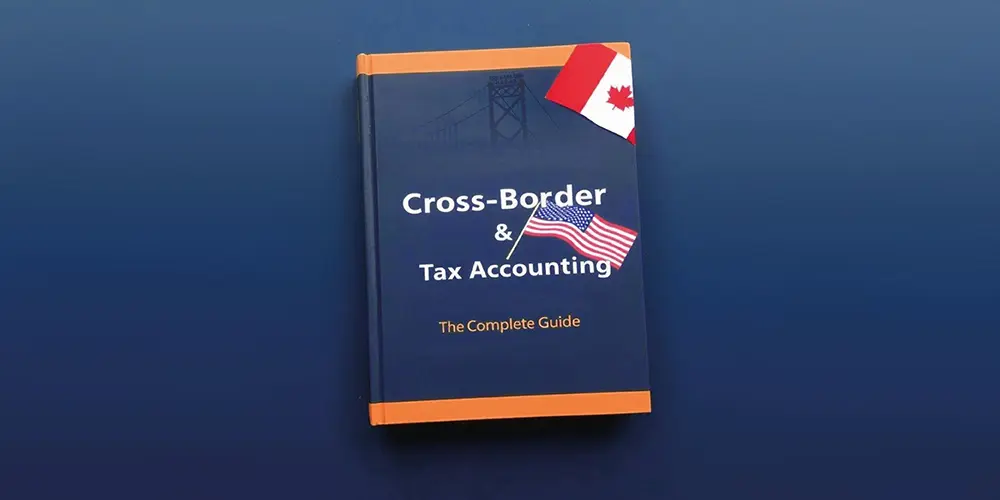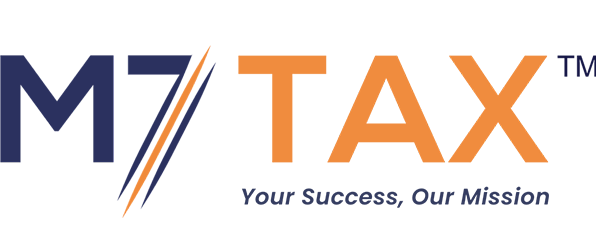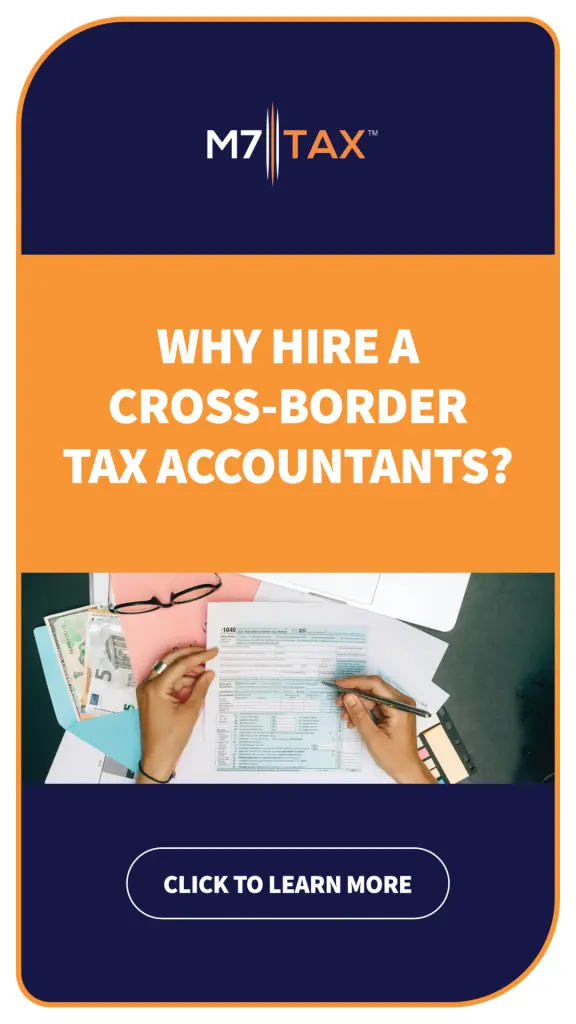Canada-USA Cross-Border Tax & Accounting: The Complete Guide


Canada-USA Cross-Border Tax & Accounting: Key Insights and Strategies
Cross-border taxation between Canada and the United States can be a complex and challenging area of financial management for individuals and businesses alike. The two countries have a long-standing relationship, both in terms of trade and investment, which means there are numerous cases where individuals and companies are subject to the tax laws of both nations. Whether you’re a Canadian citizen working in the U.S., an American business expanding into Canada, or a multinational corporation dealing with cross-border transactions, understanding the nuances of cross-border tax and accounting is essential to ensure compliance and avoid costly mistakes.
In this guide, we’ll explore the key aspects of Canada-USA cross-border tax and accounting, common challenges, compliance requirements, and the strategies you can use to optimize your tax position and business operations.
1. Understanding Cross-Border Taxation
Both Canada and the U.S. have extensive tax systems that are unique to each country. However, their shared border and frequent cross-border activities, such as trade, investment, and employment, create a need for mutual understanding and compliance across both systems.
The U.S. taxes its citizens and residents based on their worldwide income, regardless of where they live or earn that income. Similarly, Canada taxes individuals and businesses based on their residency status, which may include income earned globally.
For cross-border individuals or businesses, this creates the potential for double taxation, where the same income is taxed by both Canada and the U.S. Fortunately, both nations have mechanisms in place to mitigate this risk, primarily through the Canada-U.S. Tax Treaty.
2. Double Taxation
The Canada-U.S. Tax Treaty was created to prevent double taxation and to resolve issues of tax residency for individuals and businesses that might be subject to tax in both countries. The treaty outlines which country gets the right to tax certain types of income, such as dividends, interest, and royalties, as well as income from pensions or retirement plans.
Key provisions of the treaty include:
-
Exemption or reduction of tax on dividends, interest, and royalties: The treaty helps reduce withholding taxes on income paid across borders. For example, dividends paid from a U.S. company to a Canadian resident are subject to a reduced withholding tax rate under the treaty.
-
Tax Credit System: To reduce the risk of double taxation, taxpayers can claim a foreign tax credit in either country for taxes paid to the other. This ensures that income taxed in one country doesn’t face additional tax in the other.
-
Rules for tax residency: The treaty provides rules for determining residency in cases where an individual may be considered a resident of both Canada and the U.S. These rules establish a tie-breaker, such as permanent home, center of vital interests, or nationality, to determine which country has the primary right to tax an individual.
The treaty helps, but professional advice is often needed. Exceptions and rules vary by income type and taxpayer situation.
3. Key Cross-Border Tax Issues for Individuals
When it comes to cross-border tax for individuals, there are a few major issues that often arise:
A. Residency and Taxation
Residency is the cornerstone of tax obligations in both Canada and the U.S. Both countries consider tax residency based on different criteria, and the rules for determining residency can be confusing. Particularly for expatriates and individuals who live or work in both countries.
-
Canada: A person is generally considered a resident of Canada if they maintain significant ties to the country, such as a permanent home, spouse or common-law partner, dependents, or personal property.
-
U.S.: The U.S. uses two main tests to determine tax residency: the Green Card Test and the Substantial Presence Test. An individual who holds a U.S. green card is considered a resident for tax purposes. The Substantial Presence Test is based on the number of days spent in the U.S. over a three-year period.
In cases of dual residency (where an individual qualifies as a resident of both countries), the Canada-U.S. Tax Treaty will apply to resolve the issue of which country has the right to tax the individual.
B. Employment Income
For Canadians working in the U.S. or U.S. citizens working in Canada, their employment income may be subject to taxation in both countries. To avoid double taxation, the taxpayer may be eligible to claim foreign tax credits or exemptions under the tax treaty.
In addition, specific deductions and credits may be available to reduce the impact of taxes on foreign employment income, such as the Foreign Earned Income Exclusion in the U.S. or the Canada-US Social Security Agreement, which helps avoid paying into both countries’ social security systems simultaneously.
C. Retirement Accounts
One of the most complicated aspects of cross-border taxation involves retirement accounts, such as the Registered Retirement Savings Plan (RRSP) in Canada and the 401(k) or IRA in the U.S. The tax treatment of these accounts varies significantly between the two countries, especially when funds are withdrawn or transferred.
For example, RRSP contributions are tax-deferred in Canada but may be subject to U.S. taxes upon withdrawal unless proper reporting is done. Similarly, U.S. taxpayers with an RRSP might face additional U.S. tax reporting obligations under the Passive Foreign Investment Company (PFIC) rules.
It’s important for cross-border individuals to consult us to understand in both countries.
4. Key Cross-Border Tax Issues for Businesses
Cross-border businesses also face significant challenges in navigating the tax systems of both countries. Whether you are expanding into Canada or the U.S. or operating across both borders, understanding key tax issues is critical to avoid penalties and optimize operations.
A. Corporate Taxation
Both Canada and the U.S. tax the income of businesses based on where they are considered residents for tax purposes. This is typically determined by the country of incorporation. However, cross-border businesses may face additional complexities regarding:
-
Transfer Pricing: The IRS and CRA have specific rules on the pricing of goods and services transferred between related entities in different countries. Transfer pricing documentation and compliance are critical to ensure that the business is not subject to penalties for tax avoidance.
-
Double Taxation: Cross-border businesses often face the risk of double taxation on income generated in one country but taxed in both countries. The Canada-U.S. Tax Treaty helps mitigate this by allowing businesses to claim foreign tax credits, but the rules are complex and must be carefully followed.
B. Sales and Use Tax
In both Canada and the U.S., businesses are required to collect sales taxes on certain goods and services. While both countries have similar sales tax systems, they are administered differently at the federal, state, and provincial levels. For example:
-
Canada imposes the Goods and Services Tax (GST) or the Harmonized Sales Tax (HST), depending on the province.
-
U.S. sales tax is levied at the state and local levels, with different rates and exemptions depending on the location.
Cross-border businesses must be aware of these differences and ensure they are complying with the appropriate sales tax rules in both countries.
C. Structuring Cross-Border Business Operations
One of the most important steps in managing cross-border taxation for a business is determining how to structure operations. Common options include establishing a subsidiary or branch in the other country or forming a joint venture with a local partner.
Each option has different tax implications, particularly regarding the repatriation of profits, tax rates, and legal liabilities. A cross-border tax advisor can help determine the most efficient structure based on the specific goals of the business.
5. Practical Strategies for Cross-Border Tax Compliance and Optimization
To navigate the complexities of cross-border tax and accounting between Canada and the U.S., businesses and individuals should employ several strategies:
-
Tax Planning: Engage in proactive tax planning to understand the tax implications of cross-border income, assets, and transactions before they occur. This includes setting up the right structures and taking advantage of tax credits and exemptions.
-
Proper Documentation: Ensure that all necessary documentation, such as tax returns, reporting forms, and tax credits, are properly filed in both countries. Missing deadlines or failing to report income can result in significant penalties.
-
Seek Expert Advice: Cross-border tax issues can be complicated and involve multiple layers of compliance. It’s crucial to work with a tax advisor who specializes in both U.S. and Canadian tax laws to ensure all tax obligations are met.
Conclusion: Expert Strategies for Cross-Border Success
To navigate the complexities of cross-border tax and accounting between Canada and the U.S., businesses and individuals should employ several strategies:
-
Tax Planning: Engage in proactive tax planning to understand the tax implications of cross-border income, assets, and transactions before they occur. This includes setting up the right structures and taking advantage of tax credits and exemptions.
-
Proper Documentation: Ensure that all necessary documentation, such as tax returns, reporting forms, and tax credits, are properly filed in both countries. Missing deadlines or failing to report income can result in significant penalties.
-
Seek Expert Advice: Cross-border tax issues can be complicated and involve multiple layers of compliance. It’s crucial to work with a tax advisor who specializes in both U.S. and Canadian tax laws to ensure all tax obligations are met.
Remember, money only holds the meaning you give it. Change your story around money, and it can transform not only your business but your entire life.
Meet the experts behind M7 Group: Adnan Khan, CPA; Matthew Lopes; and Marcos Lopes, PCP. Together, they provide comprehensive tax, accounting, and financial advisory services across North America.

For more information on how M7 Group can assist you and your business with TAX Services, financial clarity, and strategic growth planning, contact us today.










